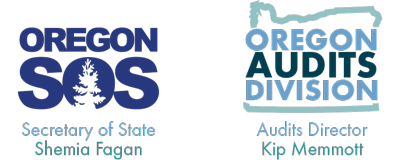Report 2023-03

Why this audit is important
Oregon has the second highest rate of substance use disorder in the nation and ranked 50th for access to treatment. In Oregon, more than two people died each day from unintentional opioid overdoses in 2021.
The U.S. experiences over $700 billion in costs relating to crime, poor health, and lost work productivity from untreated substance use disorders, a chronic, preventable, and treatable disease.
Ballot Measure 110 (M110), which passed with 58% of the vote, is a first-in-the-nation program decriminalizing drug possession and allocating over $100 million per year in cannabis revenue to expand treatment services.
Advocates of M110 hope it will succeed where previous recovery and treatment efforts have failed, especially when it comes to supporting Black and Indigenous communities and people of color.
What we found
This real-time audit was conducted in alignment with the Oregon Audits Division’s strategic focus of being timely and responsive. Real-time auditing focuses on evaluating front-end strategic planning, service delivery processes, controls, and performance measurement frameworks before or at the onset of policy implementations. We appreciate the Legislature’s support of this auditing approach by requiring a real-time audit of M110.
-
There is a significant risk that policy makers and the public will be unable to gauge the impacts and effectiveness of M110 due to existing grant management and data collection efforts.
-
Program governance, including the organizational structure of the Oversight and Accountability Council and M110 grant processes, can be improved.
- Roles and responsibilities under M110 were not clear and the existing system faces multiple silos and fragmentation.
- The Oregon Health Authority failed to provide enough support to ensure implementation of M110 was successful.
- M110’s grant application process can be made more efficient and consistent.
-
Existing silos and fragmentation in the delivery of mental health and substance use disorder treatment provide opportunities for greater collaboration and coordinated efforts. Stakeholder collaboration could be improved, especially coordination with the Department of Corrections and other public safety agencies and opportunities to collaborate with the Oregon Housing and Community Services and other housing authorities.
What we recommend
We made four recommendations to the Oregon Health Authority. OHA agreed with all of our recommendations. The response can be found at the end of the report. We also made four recommendations to the Oregon Legislature for their consideration.
